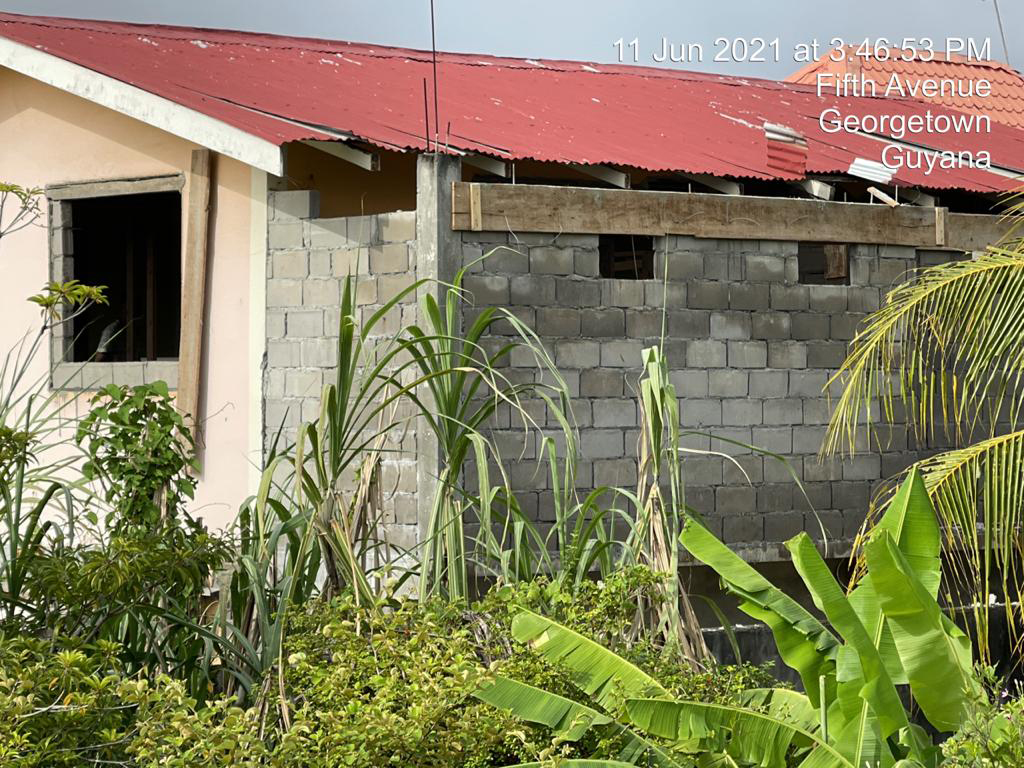High Court Judge Damone Younge last Thursday granted a default judgement against the administration of the privately-run Mae’s School to halt construction of an annex to extend its operations.
In her ruling, Justice Younge declared the Lot E ½ 42 Fourth Avenue Subryanville property owned by the Administrators of the school to be residential in accordance with its Transport and building By-laws/servitude and as a result declared the school’s move to erect extensions at that property to be illegal.
Against this background, Justice Younge declared that any approval or permission granted by the Mayor and City Council (M&CC), the City Engineer and the Central Housing and planning Authority (CH&PA) to build or alter the existing building is unlawful.
Accordingly, the judge revoked a previous decision of the M&CC, the City Engineer and CH&PA, which had granted permission for building extension operations on the property.
In the circumstances, Justice Younge has also granted the claimants—Hamdat Bisesur and Mohamed Ali—an injunction restraining Administrator of the school—Stacy French—from carrying on any industry or business at the lot, including building school apartments.
The Claimants were granted court costs in the sum of $50,000 and the defendants were cautioned that failure to comply with the terms of the order of court will result in contempt of court for which they may be liable to imprisonment or have their assets confiscated.
French, the Town Clerk, and the CH&PA are all listed in the court action as Defendants.
Through their attorney Jamela Ali SC, residents Bisesur and Ali, whose individual properties respectively adjoin and is obliquely behind Lot 42, argue in their 2018 claim that French and her mother Mayfield French, who owns the private school, are in breach of the law over converting the building to add school apartments.
They deposed that the Frenches are in breach of Section 304 of the Municipal Districts and Council Act, which states that “No dwelling house shall be erected nearer than eight feet to the boundary lines of any lot.”
In an affidavit supporting their claim, they said, too, that the buildings on the property cover more than half of the lot in breach of By-law 55 of the Georgetown Building By-Laws, which states that “No new building erected in a residential district either alone or taken in conjunction with any existing building, shall cover more than one-half of the superficial area of the lot on which it is erected.”
Also being complained about is what they say is an erection/structure at the side of the back building which ends approximately one foot from the western side boundary in breach of Section 22 of the By- laws and Transport.
The Claimants say that the Frenches are constructing contrary to the servitude which stipulates that there shall be a distance of not less than 12 feet from the front boundary and not less than eight feet between the side boundaries; and that where there is a second building being erected, there shall be a distance of not less than 16 feet between each building.
Bisesur and Ali said that when the owners of the school indicated to residents their intentions to extend the school and their plans to change the use of Lot 42 from residential to commercial for an apartment complex, they were met with objections.
They said that residents had reminded them of the servitude contained in the Transport, which states that “no shop, trade, or industry, or business whatsoever shall be carried on” at the property.
The servitudes and restrictive covenants, the Claimants argue, are aimed at preserving the residential character of the neighbourhood and that disobedience by property owners should not be permitted.
The men said that on April 17, 2018, a group of residents met with the then Minister of Communities, the Mayor, Deputy Mayor and the CH&PA concerning their objections to the operation of a school, the use of the community ground and the need for preserving the residential nature of the community.
They said they were given assurance that any applications for building construction would be brought to the attention of the residents; yet construction works commenced.
The Claimants said that the M&CC has a duty to ensure building compliance with the By-laws, which provide that the Council may, if it thinks fit, direct the City Engineer to pull down any building or part thereof erected in contravention of those laws.
The two residents say that apart from the breaches, the buildings and the alterations also constitute a public nuisance, which adversely affects them and other residents who stand to suffer “substantial and unreasonable interference with their quiet, peaceful, comfortable and ordinary use, occupation and enjoyment of their properties, tremendous discomfort, annoyance and inconvenience in their daily lives.”
The Claimants also contend that the unlawful building operations will significantly depreciate the value of their properties and block proper ventilation of air, while noting that damages would be an inadequate remedy.
According to a court Order seen by this newspaper, back in 2019 the Frenches were issued an injunction to desist works on the property.
Attorney Ali explained to Stabroek News that while works had ceased after that Order was issued, construction started again in May of this year. Following Justice Younge’s order, Ali said that Marshals attempted to serve the latest document last Friday, but workers locked the gate, refusing to accept service.
She said that the continued defiance of the court’s order had been communicated to the Town Clerk, while noting that she is now awaiting the City Council to issue a cease order.



